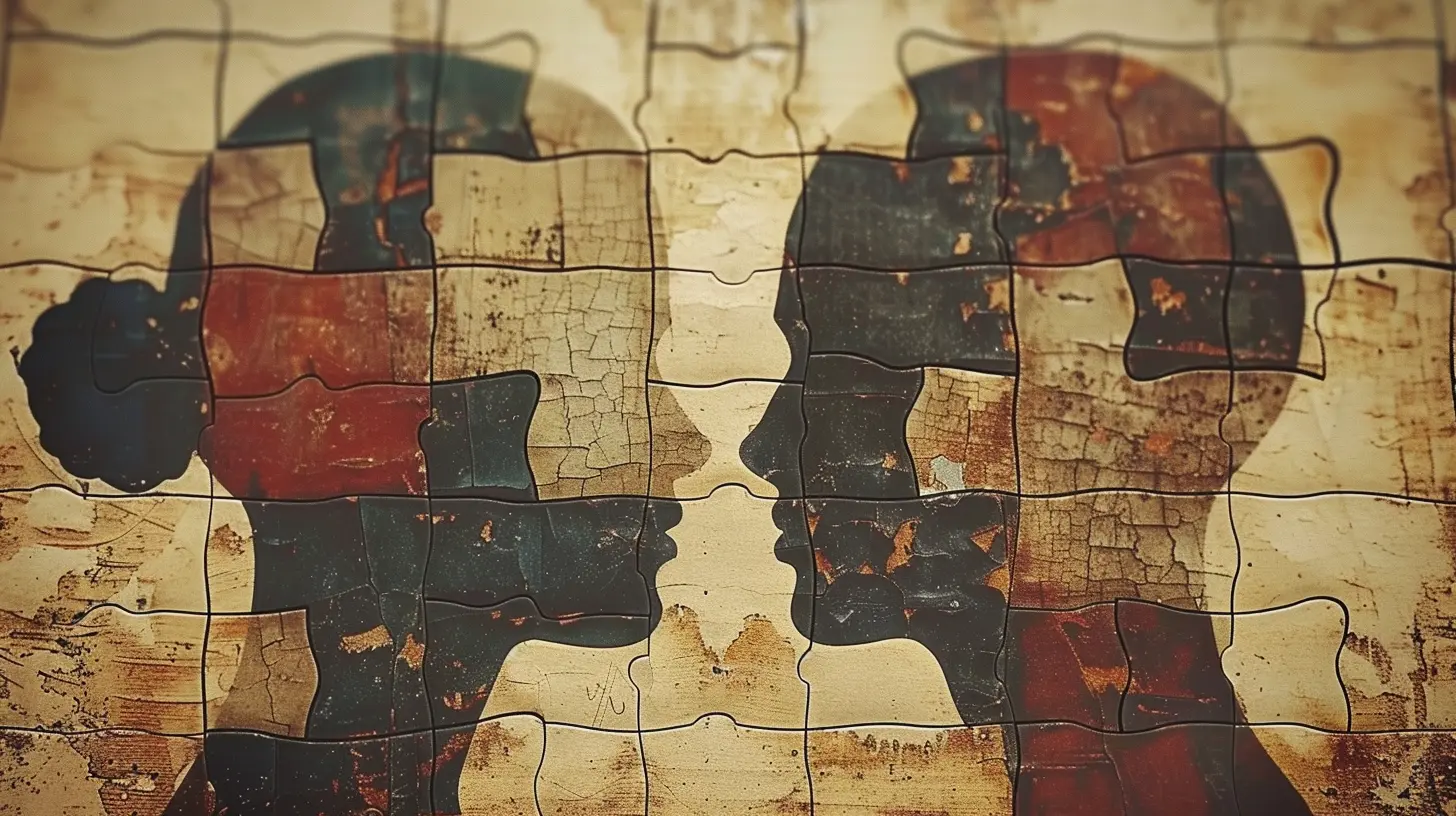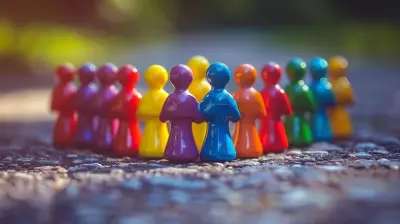Attachment Theory and the Role of Empathy in Relationships
21 April 2025
When we think about relationships, what often comes to mind is love, trust, and connection. But there’s so much more going on beneath the surface. It’s like an intricate dance, where emotions, needs, and past experiences all influence how we interact with our partners. One of the most powerful frameworks to understand this dance is attachment theory, and right along with it, empathy plays an essential role in keeping relationships healthy.
In this article, we’ll dive deep into attachment theory—what it is, how it shapes our relationships—and explore the critical role of empathy in maintaining strong emotional bonds.

What Is Attachment Theory?
Let’s start with the basics. Attachment theory was first introduced by British psychologist John Bowlby in the mid-20th century. Bowlby was curious about how early experiences with caregivers shape our relationships later in life. He believed that the emotional bonds we form with our primary caregivers during childhood impact how we connect with others as adults.Sounds pretty significant, right?
Essentially, attachment theory suggests that the way we relate to our parents or caregivers as babies sets the stage for how we’ll interact with romantic partners, friends, and even coworkers as adults. It’s like a blueprint for connection that we carry with us throughout our lives.

The Four Attachment Styles
Based on early interactions with caregivers, individuals typically develop one of four attachment styles. Each style represents a different way of approaching relationships. Let’s break them down:1. Secure Attachment
If you had caregivers who were consistently responsive to your needs as a child, you’re likely to develop a secure attachment style. People with this style tend to be confident in relationships. They’re comfortable with both intimacy and independence, trusting that their partner will be there when needed.2. Anxious Attachment
People with an anxious attachment style often had caregivers who were inconsistent—sometimes available, sometimes not. As a result, they may feel insecure about their relationships and constantly seek reassurance from their partners. This can lead to clinginess or a fear of abandonment.3. Avoidant Attachment
On the flip side, those with an avoidant attachment style may have had caregivers who were emotionally distant or unresponsive. These individuals tend to value independence over intimacy and may struggle to form close emotional bonds. In relationships, they often keep their partners at arm’s length.4. Disorganized Attachment
Finally, disorganized attachment is a mix of both anxious and avoidant tendencies. This style usually stems from caregivers who were abusive or neglectful, leading to confusion and fear around relationships. People with this style may crave closeness but also push it away due to fear of getting hurt.
How Attachment Styles Show Up in Relationships
Now that we know the different attachment styles, let’s talk about how they show up in relationships.- Securely attached individuals tend to have healthier relationships. They’re comfortable with closeness, but they also respect boundaries. They communicate openly, trust their partners, and can handle conflict without falling apart.
- Anxiously attached individuals often feel like they need constant validation. They may overthink their partner’s actions, worry about being abandoned, or become overly dependent on their partner for emotional support.
- Avoidantly attached individuals tend to shy away from emotional intimacy. They might be described as “emotionally unavailable” and often struggle to open up. They may also avoid conflict altogether, sweeping issues under the rug to maintain distance.
- Disorganized individuals can experience a push-pull dynamic in relationships. They want closeness but are fearful of it at the same time. This can result in unpredictable behavior, such as lashing out or withdrawing from their partner.

The Impact of Attachment on Empathy
So, where does empathy come into play? Well, empathy is the glue that helps hold relationships together, regardless of your attachment style. It’s the ability to understand and share the feelings of another person. Sounds simple, right? But in reality, it’s a lot more complex.Empathy allows us to connect with our partners on a deeper level. It helps us understand their perspective, validate their emotions, and offer support when needed. Without empathy, relationships can feel cold and disconnected.
But here’s the thing: Your capacity for empathy is also influenced by your attachment style.
- Securely attached individuals tend to have a greater capacity for empathy because they’re comfortable with emotional closeness. They’re able to tune into their partner’s needs and respond in a caring way.
- Anxiously attached individuals may struggle with empathy because they’re so focused on their own needs for reassurance. They might have a hard time seeing things from their partner’s perspective because they’re preoccupied with their own fears of abandonment.
- Avoidantly attached individuals often struggle with empathy because they’re uncomfortable with emotional intimacy. They may distance themselves from their partner’s emotions or minimize their partner’s feelings as a way to protect themselves.
- Disorganized individuals may experience empathy in a chaotic way. They might feel overwhelmed by their partner’s emotions and react unpredictably, either withdrawing or becoming overly involved.
The Role of Empathy in Healing Attachment Wounds
The good news is that empathy can help heal attachment wounds. Even if you developed an insecure attachment style in childhood, you can still work on building healthier relationships as an adult. And empathy is a key ingredient in that process.When you practice empathy in your relationships, you’re showing your partner that you care, that you’re there for them, and that you understand their emotional experience. This can help create a sense of safety and security, which is crucial for healing attachment wounds.
But here’s the kicker: It’s not just about offering empathy to your partner. You also need to have empathy for yourself. This means recognizing your own emotional needs, validating your feelings, and being kind to yourself when things get tough.
Building Empathy in Relationships
If you’re wondering how to cultivate more empathy in your relationships, don’t worry—it’s a skill that can be developed. Here are a few practical tips to get you started:1. Active Listening
When your partner is sharing their thoughts or feelings, practice active listening. This means giving them your full attention—not interrupting or thinking about how you’re going to respond. Nod, make eye contact, and show that you’re fully present in the conversation.2. Validate Their Emotions
When your partner expresses their emotions, even if you don’t fully understand or agree, it’s important to validate their feelings. This might sound like, “I can see why you’d feel that way” or “That sounds really tough.” Validation helps your partner feel heard and understood.3. Put Yourself in Their Shoes
Empathy is all about stepping outside of your own perspective and putting yourself in someone else’s shoes. Ask yourself how your partner might be feeling or what they might be experiencing in a given situation. This can help you respond with more compassion.4. Communicate Openly
A big part of empathy is being able to communicate openly and honestly with your partner. Share your own feelings in a way that allows for mutual understanding. Use “I” statements like “I feel” rather than placing blame, which can help avoid defensiveness.5. Practice Self-Empathy
Don’t forget about yourself. It’s hard to offer empathy to others if you’re not taking care of your own emotional well-being. Take time to check in with your feelings, practice self-care, and give yourself grace when things don’t go perfectly.How Empathy Can Shift Attachment Dynamics
Here’s the beautiful thing: When empathy is present in a relationship, it can actually shift attachment patterns. Couples who practice empathy consistently can create a foundation of trust and security, even if one or both partners have an insecure attachment style.For example, a partner with an anxious attachment style might feel more secure if they sense that their partner understands and validates their fears. On the flip side, a partner with an avoidant attachment style might feel more comfortable opening up if they experience empathy from their partner without pressure or judgment.
In other words, empathy helps break down the walls that insecure attachment styles create. It fosters emotional closeness, reduces conflict, and helps both partners feel safe enough to be vulnerable.
Wrapping It All Up
At the core of every healthy relationship is the ability to connect emotionally, and both attachment theory and empathy play crucial roles in that process. While our attachment styles may set the stage for how we approach relationships, empathy is what helps us navigate the ups and downs, heal old wounds, and build stronger, more fulfilling connections.So, whether you’re securely attached or still working through your attachment style, remember: empathy is your secret weapon. It’s the key to understanding your partner, deepening your bond, and creating a relationship built on trust and emotional intimacy.
all images in this post were generated using AI tools
Category:
Attachment TheoryAuthor:

Paulina Sanders
Discussion
rate this article
4 comments
Annabelle Clayton
Understanding attachment styles enhances our empathy, fostering deeper connections and healthier relationships built on trust and communication.
May 14, 2025 at 3:24 PM

Paulina Sanders
Absolutely! Understanding attachment styles indeed deepens our empathy, allowing us to build stronger, more trusting relationships through effective communication. Thank you for your insight!
Elle Pacheco
In the dance of hearts, attachment sings, Empathy’s gentle touch, a bond that clings. Through understanding and warmth, we find our way, Nurturing connections, come what may. Together, we bloom, come night or day.
May 6, 2025 at 3:16 AM

Paulina Sanders
Thank you for your beautiful reflection! You perfectly capture the essence of how empathy and attachment intertwine to nurture meaningful connections in our relationships.
Serenity McGlynn
Insightful read! Empathy truly enhances relationships profoundly.
April 28, 2025 at 3:09 PM

Paulina Sanders
Thank you! I'm glad you found it insightful. Empathy is indeed crucial for deepening connections.
Destiny McGlynn
This article beautifully highlights the profound connection between attachment theory and empathy. Understanding how our early experiences shape our emotional bonds can truly transform our relationships. By practicing empathy, we not only nurture our connections but also foster healing and growth. Thank you for shedding light on this vital aspect of human relationships!
April 21, 2025 at 4:50 AM

Paulina Sanders
Thank you for your thoughtful insights! I'm glad you found the connection between attachment theory and empathy meaningful. It's crucial for fostering nurturing relationships.



